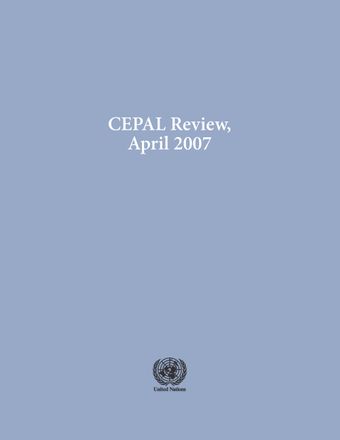-
Evolution of the link between selective anti-poverty policies and social sectors policies
- Source: CEPAL Review, Volume 2007, Issue 91, Jun 2007, p. 111 - 132
- Spanish
-
- 03 Jun 2007
Abstract
This conceptual and historical analysis of paradigmatic social policy experiences in the region reveals some fundamental landmarks in the evolution of the link between selective anti-poverty policies and social sector policies. These landmarks are associated with major changes in targeting policies and with a number of universal social policy reforms. Special attention is given to the redistribution-with-growth approach; subsequent reductionist targeting proposals, which have undergone shifts in conceptual and effective terms over the last two decades; and the concern for interaction with social sectors displayed by some present-day conditional transfer programmes, which stand out in the region because of their scale. Two related trends observed in fields that go beyond the effort to combat poverty are also analysed: the reductionist social risk management proposal and, in the opposite direction, the introduction of health guarantees.





